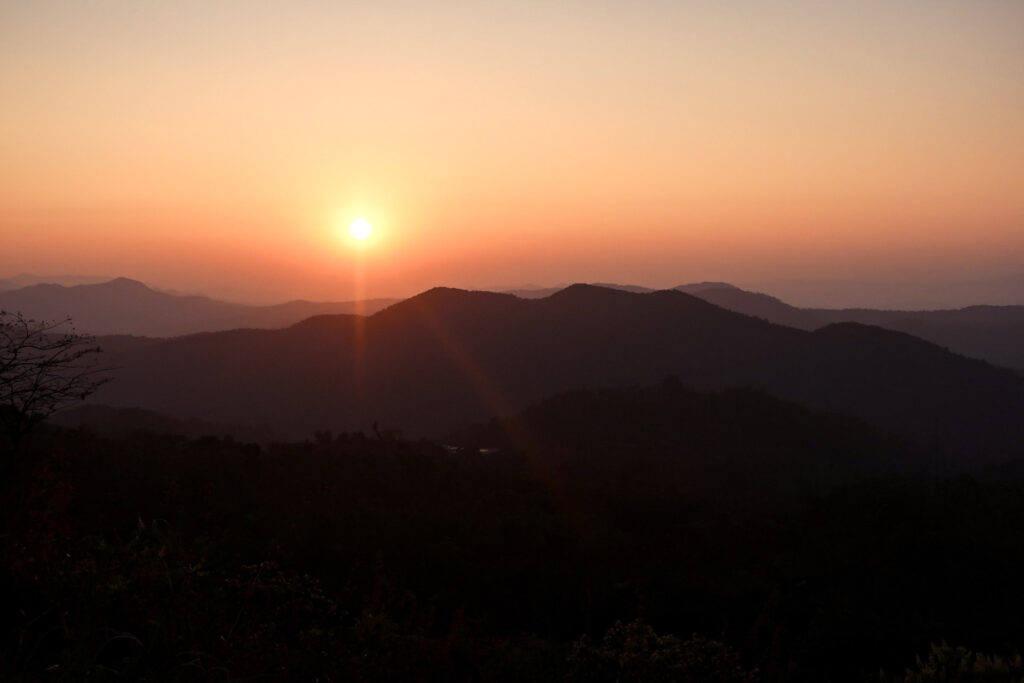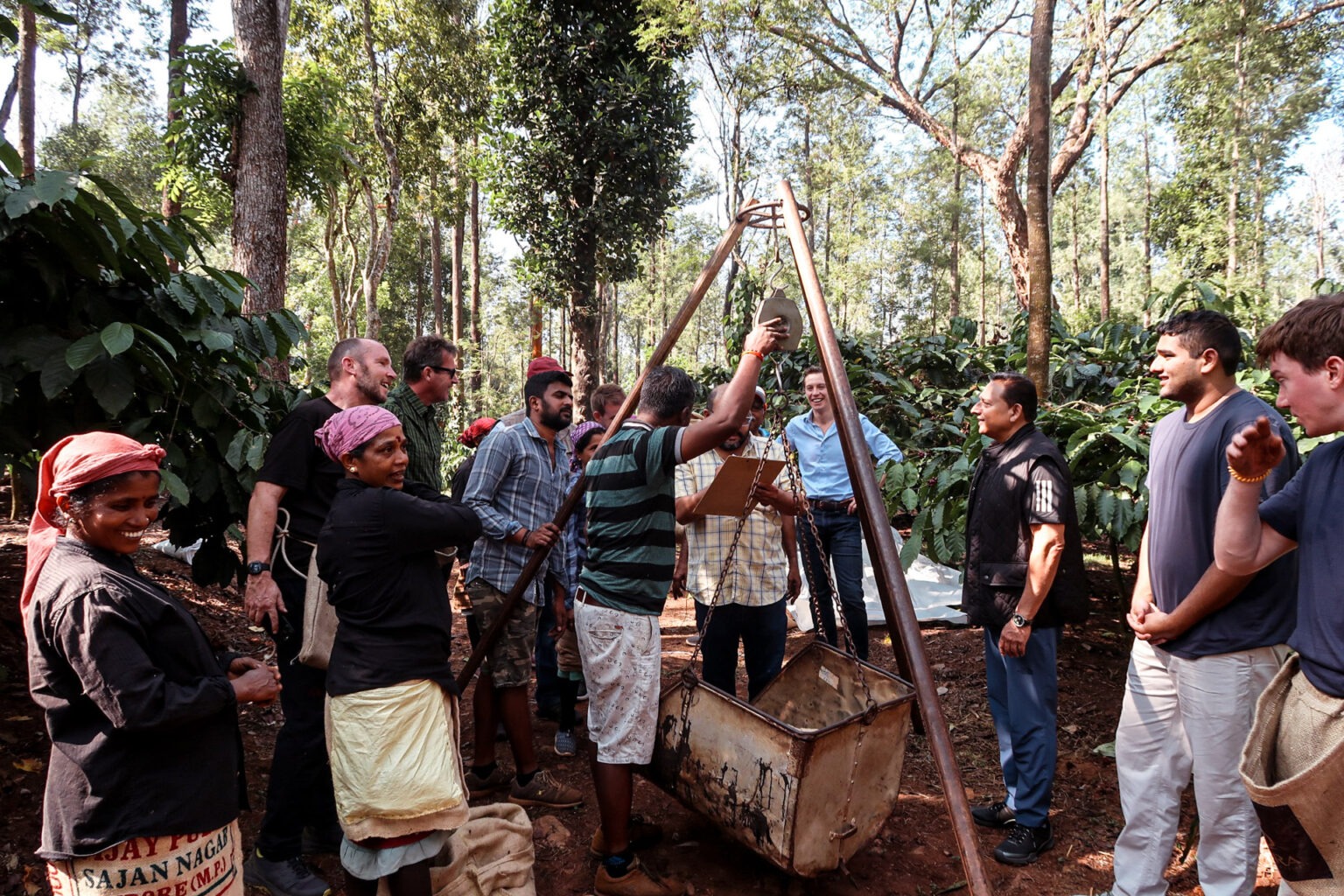On 28th January, our Business Development Manager, Joe, set out on an awe-inspiring coffee-sourcing journey to India. These visits are incredibly important to us, not only from a training and development perspective, but also in helping us create the best possible coffees for our customers. Here are Joe’s daily highlights:
Day 1 – Heathrow to Bangalore:
After a long ten-hour flight from Heathrow, I arrived in Bangalore early in the morning. I met my fellow travellers at the Palm Meadows hotel, where we took some time to relax before our adventure began.
Day 2 – Coffee Cupping & Shivoham Shiva Temple:
We wasted no time and headed straight to the ECOM Head Office for our first coffee cupping session. It was a fantastic opportunity to taste different blends and learn about the diverse beans and the farms they are grown on. In the afternoon, we visited the magnificent Shivoham Shiva Temple, a tribute to the Hindu deity Lord Shiva.
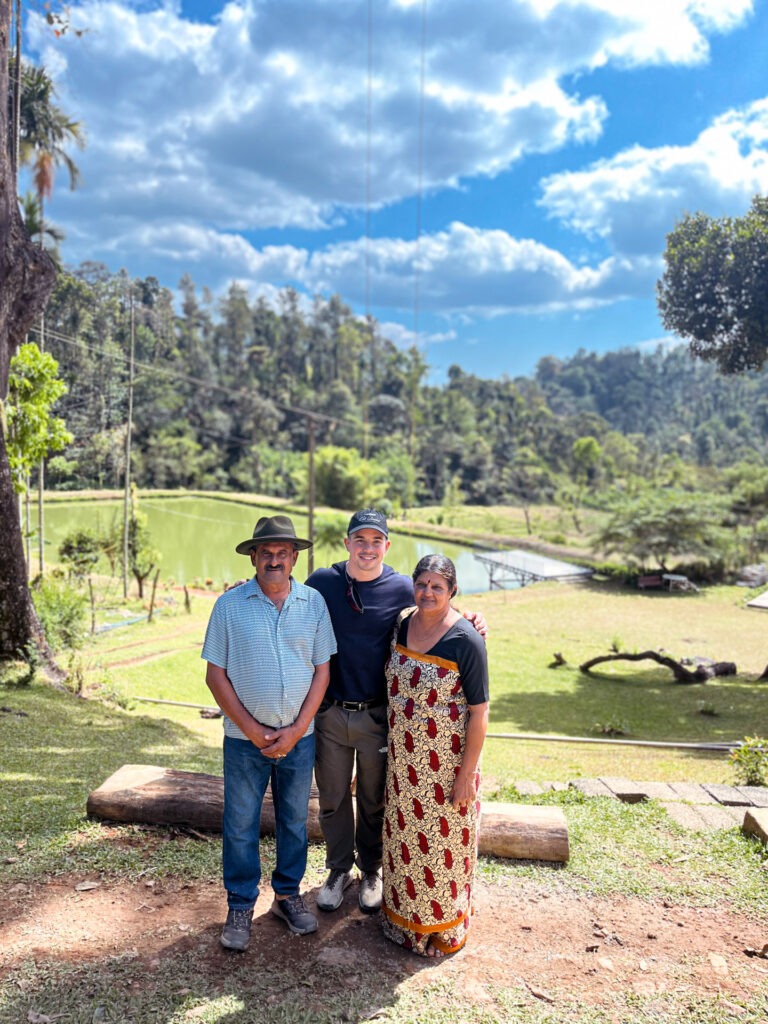
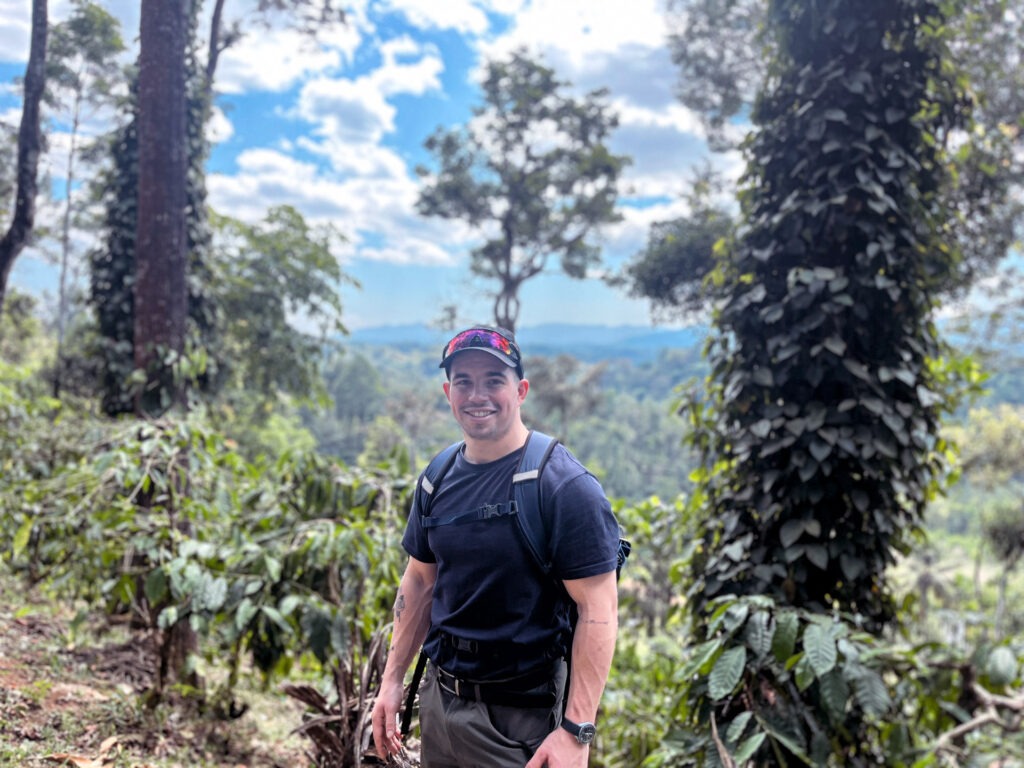
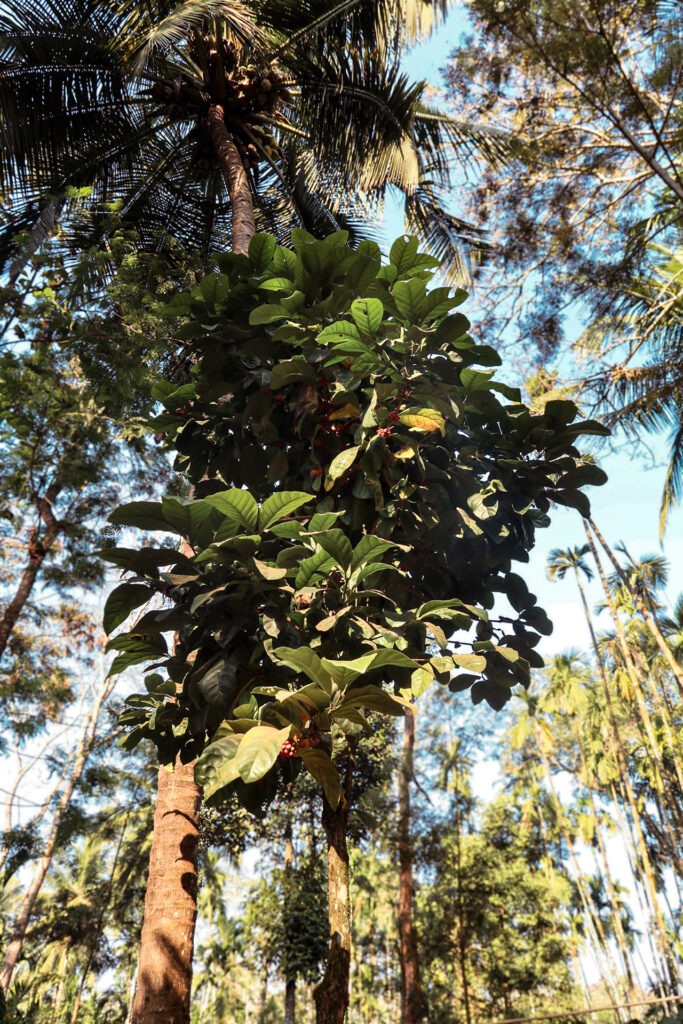
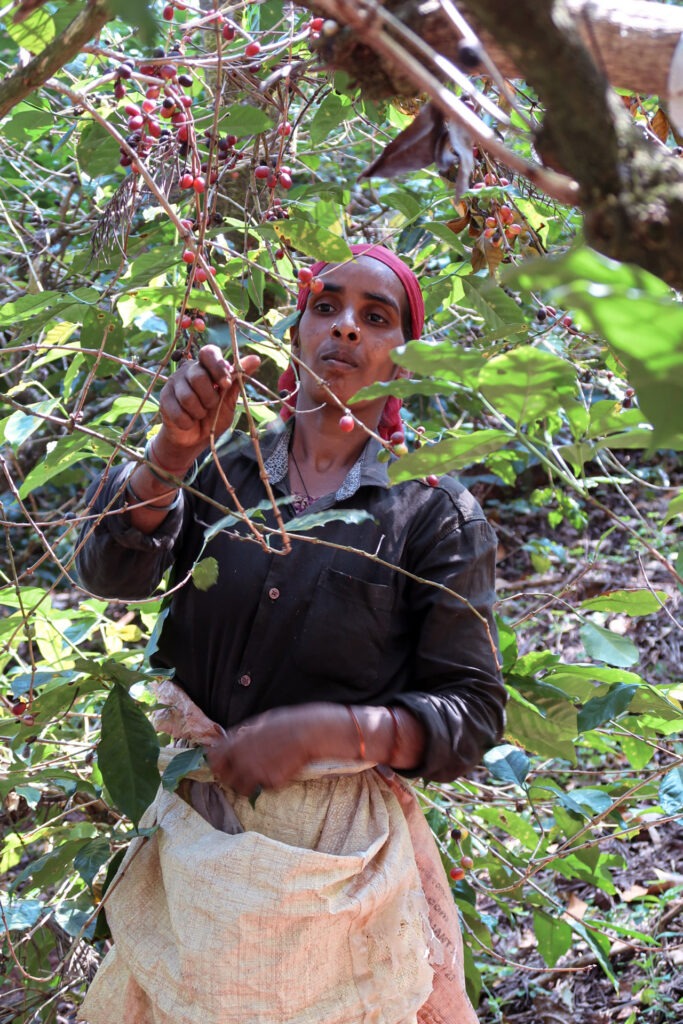
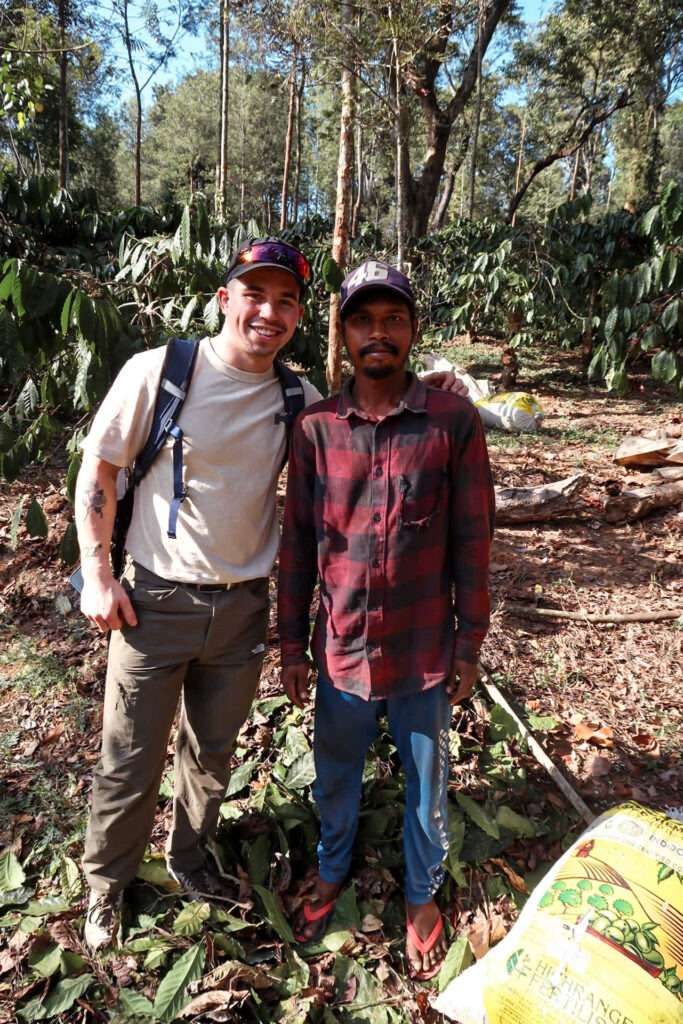
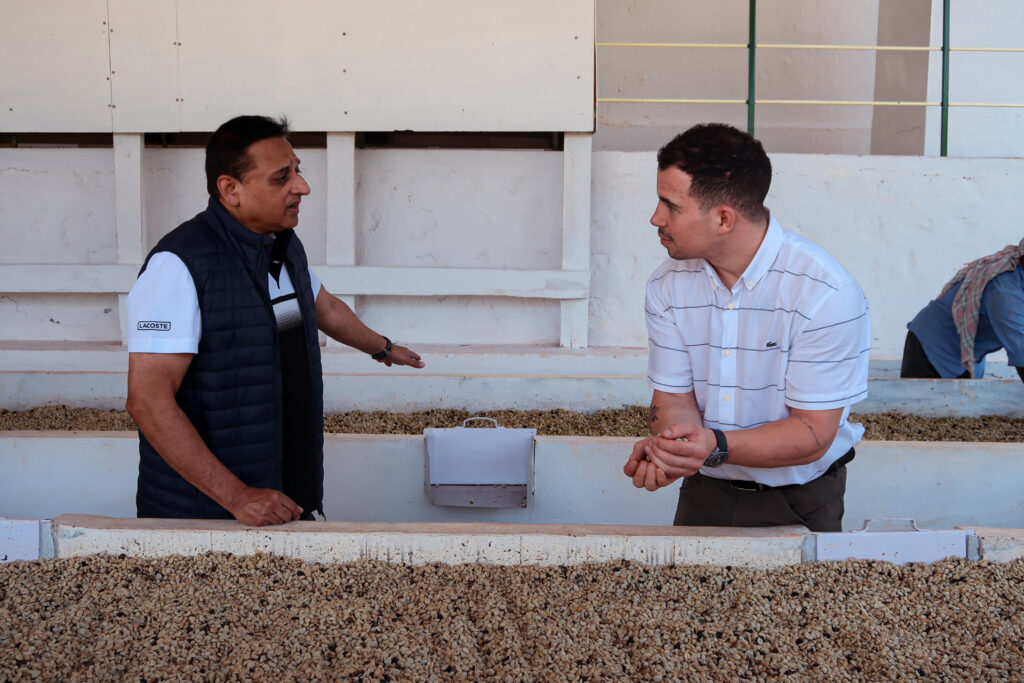
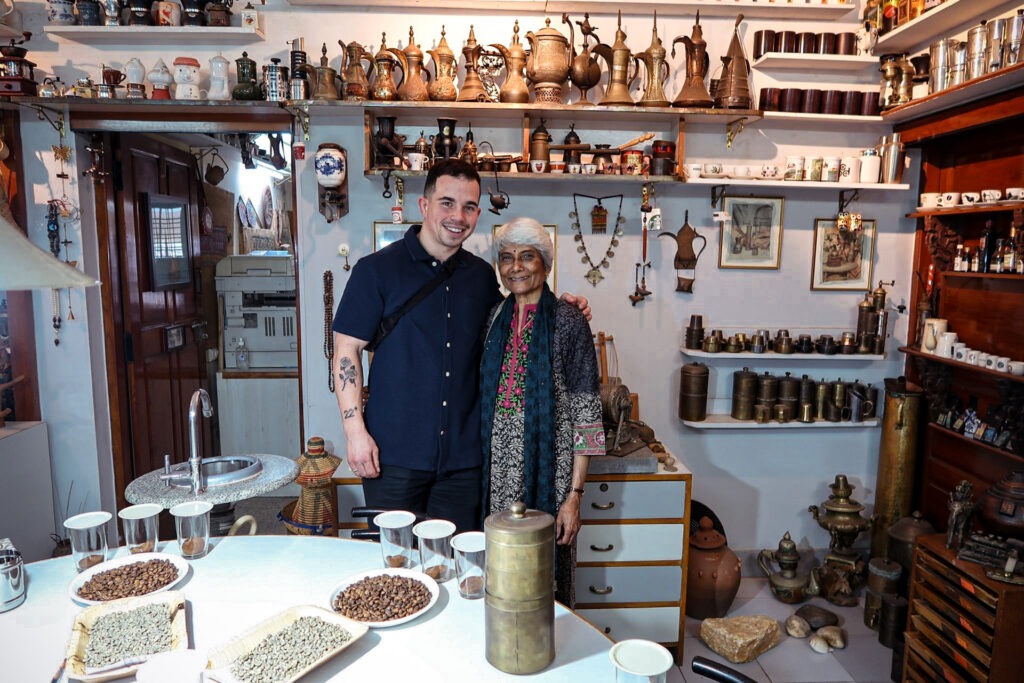
Day 3 – The Coffee Board of India:
An early start took us to the Coffee Board of India, a biodiversity hotspot dedicated to supporting small coffee growers and promoting sustainability. We had a guided tour of the board’s head office and listened to a talk about the vital role of the coffee industry in India. Meeting Sunalini Menon, known as the ‘First Lady’ of Indian coffee, was a true highlight. Her inspiring journey and expertise left a lasting impression on all of us. So much so, I plan to write a separate article dedicated to her story. Watch this space!
Day 4 – Bangalore to Kushalnagar:
We embarked on a five-hour journey from Bangalore to Kushalnagar. During the drive, we made a short detour to visit the historical Mysore Palace, which has a rich history connected to the region’s coffee culture.
Day 5 – Ecom Mill & Coorg Farm:
The day started with a visit to an ECOM Mill, where we witnessed the coffee-sorting process and learned about the meticulous work carried out by the mill workers. We then headed to Coorg Coffee Farm, a century-old family-run estate. The mother-daughter team leading the farm shared their knowledge about the Robusta beans grown in the region and even told us about the occasional visits from local elephants, who can cause havoc on the crops!
Day 6 – Rosewood Coffee Farm & The Tibetan Monastery:
Our sixth day in India began with a visit to Rosewood Coffee Farm. This fourth-generation family-run business specialises in natural process robusta and is certified by the Rainforest Alliance. The father-son duo managing the farm introduced us to their team of farmers, many of whom work alongside their families, and benefit from free on-site accommodation. They also shared the challenges they face, including regular visits from elephants and monkeys. To avert disaster, the family have created a watering hole on the edge of the farm, keeping the inquisitive visitors at bay. Later, we headed to the local Tibetan Monastery, another remarkable sight.
Day 7 – Kushalnagar to Badra Estate:
The following day, we travelled to Badra Estate. Here, we visited two temples – the Hoysaleswara Temple Complex and the Chennakeshava Temple. Our guides led us through these ancient sites, sharing the significance behind the hand-carved Hindu figures that adorned them. I was particularly blown away by centuries-old depictions of missiles launching into space!
Day 8 – Badra Estate Mill & Farm:
Our second Sunday in India was spent at a Badra Estate Mill and Farm, which is owned by Jacob, a familiar face to the team at Caffeine Limited. Justin and Karen had met him on a prior visit to the farm, where he produces not only arabica and robusta coffees, but tea and rubber besides. I especially enjoyed meeting Jacob’s son Varuum, who, like me, will eventually be taking over the family business. Secure succession is a particularly reassuring concept when it comes to coffee farming, as young people are increasingly leaving the family business in pursuit of alternative careers. We learned about the pulping process and met with farm pickers who shared their daily responsibilities. On our way back to the accommodation, we jumped at the opportunity to join some local children playing cricket. Another fantastic day.
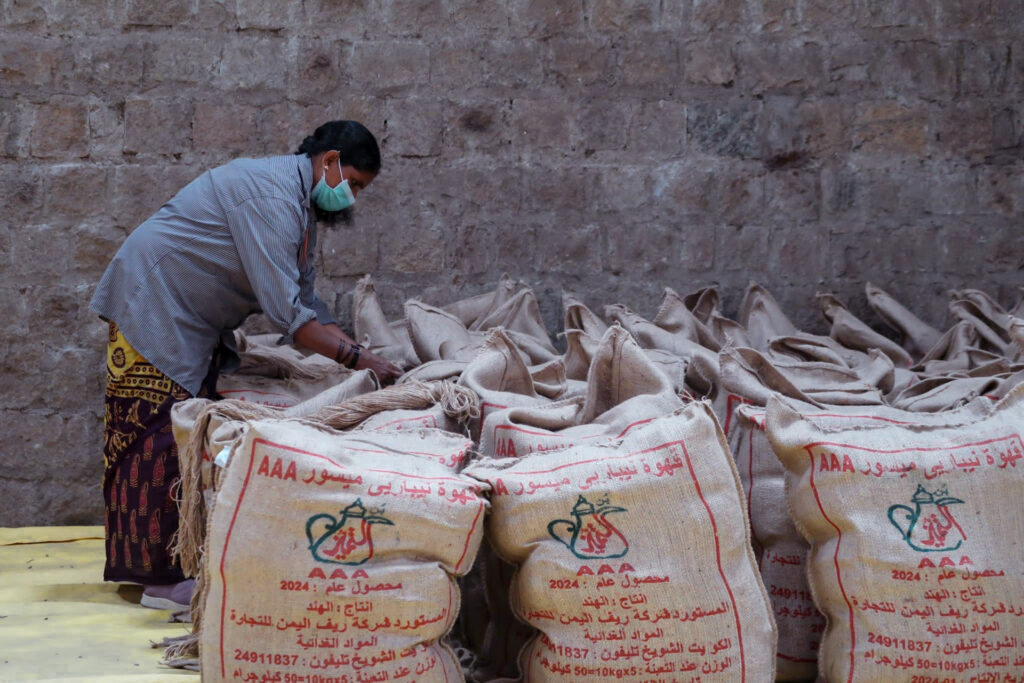
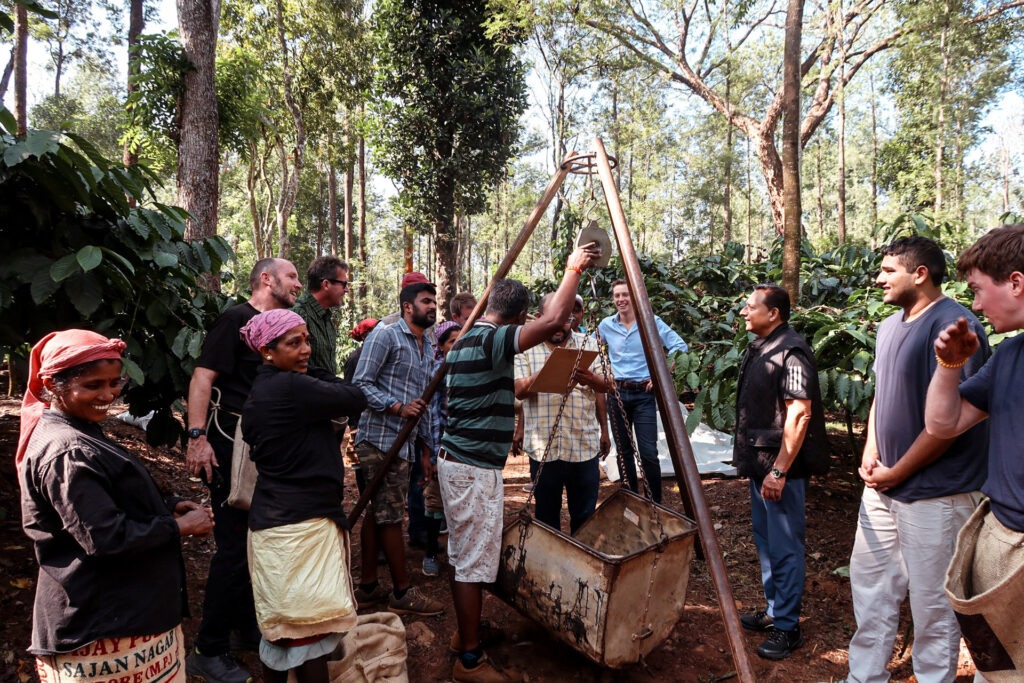
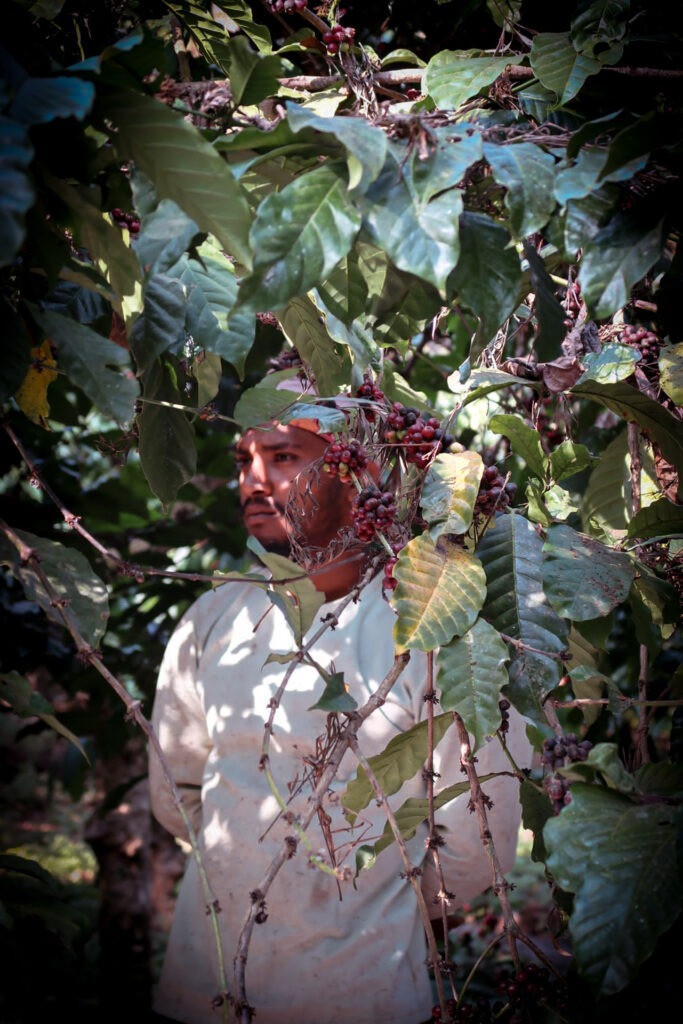
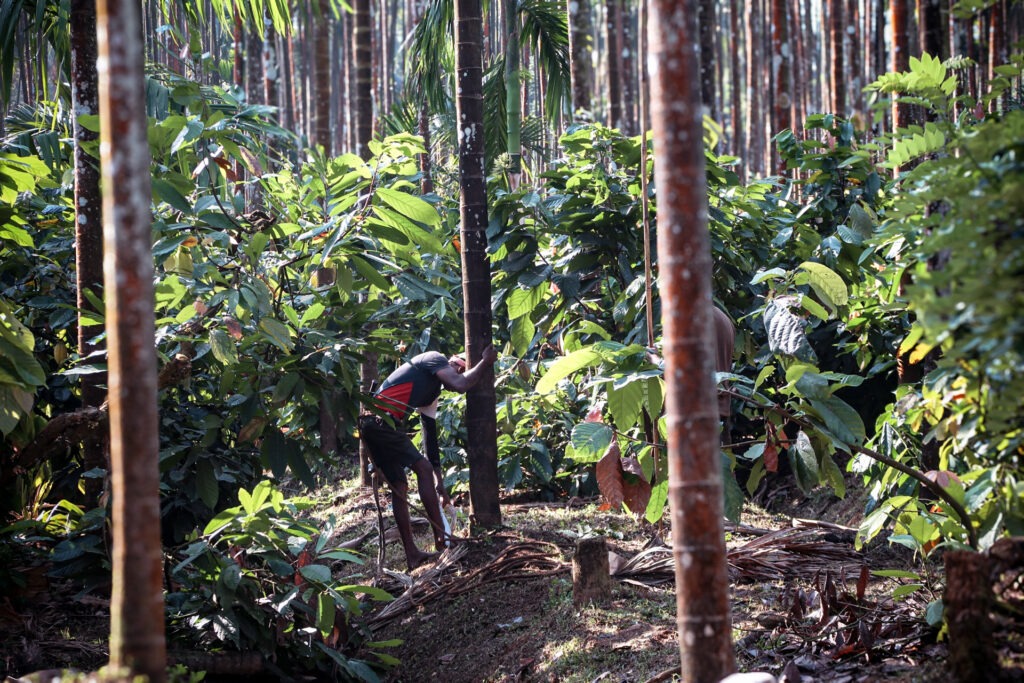
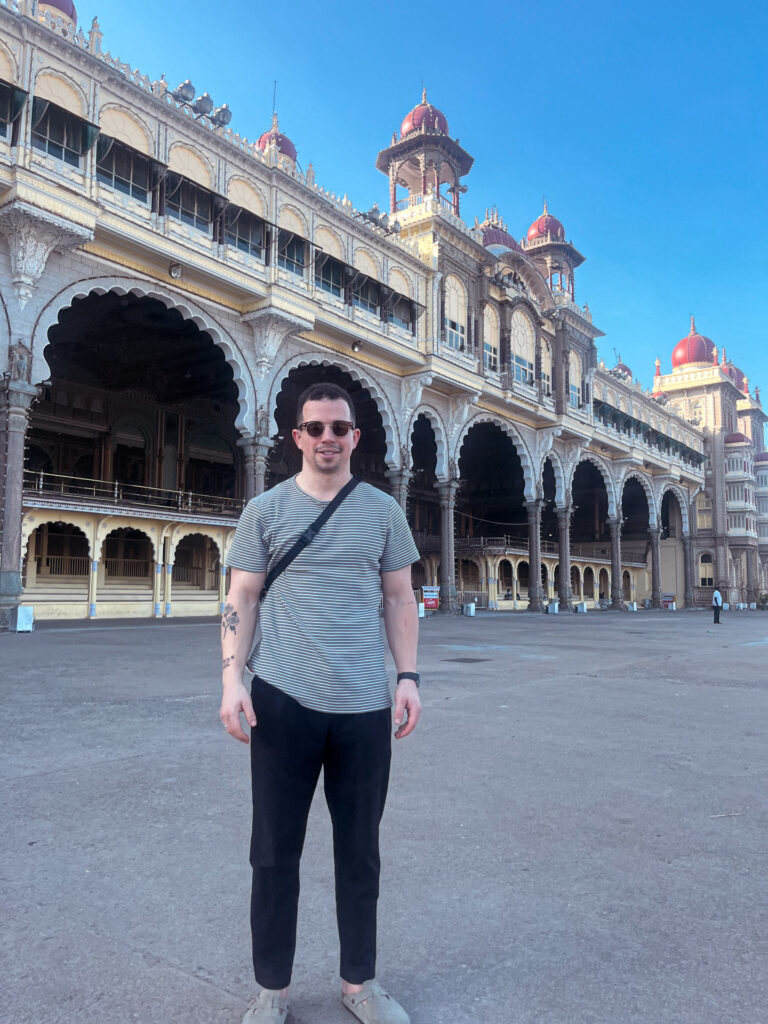
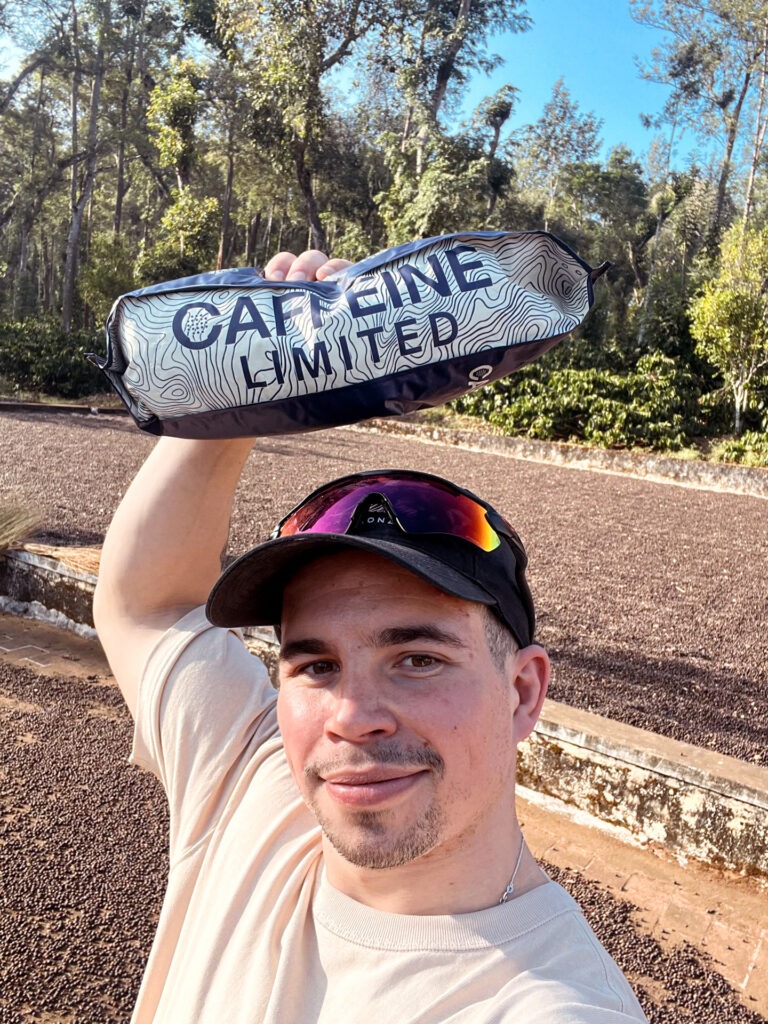
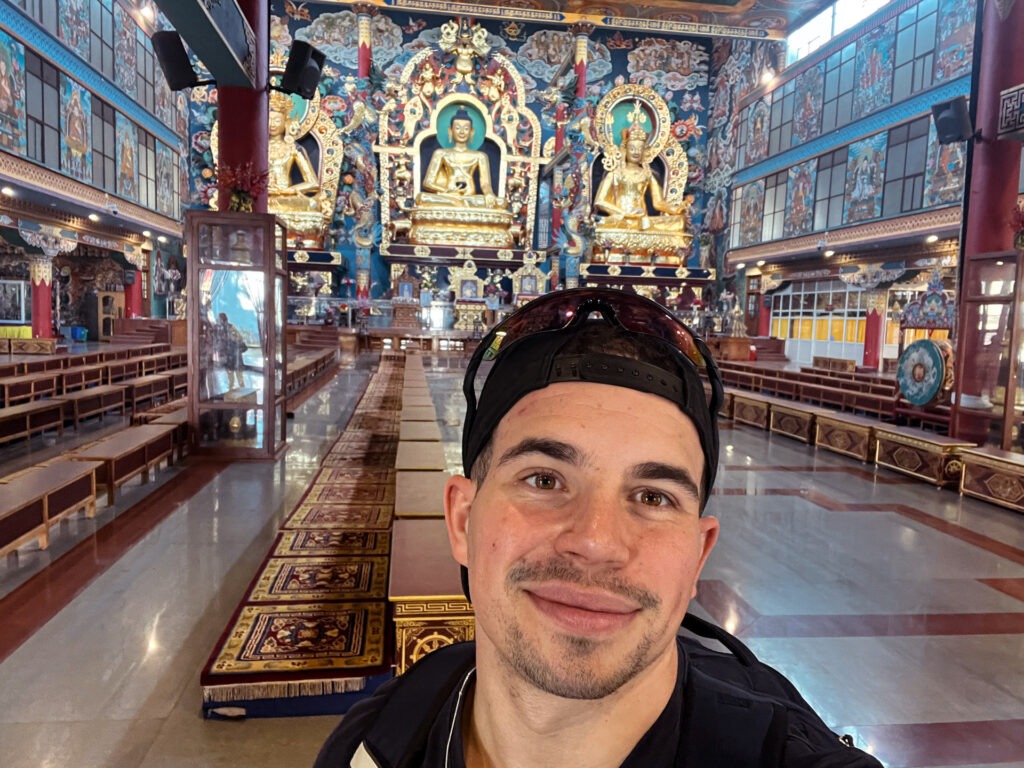
Day 9 – Chikmagalur Farm & Coffee Cupping:
Monday kicked off with a trip to another Badra Estate Farm – Chikmagalur Farm. We heard all about the challenging job of pruning fruit and trimming tree branches. We also visited the farm school, which cares for the children of the farm workers. My stash of Haribo went down particularly well! A competitive coffee harvesting contest added some excitement to the day (I won’t tell you where I placed, as it’s a long story!). Later, we had another session of coffee cupping. This time 20 coffees, 10 robustas and 10 arabicas, 5 of each washed and 5 natural. It was a treat to experience a high quality washed robusta, which certainly isn’t the norm. Later we joined the estate managers from Badra for a sunset BBQ.
Day 10 – Melkodige Coffee Estate & Buying Facility:
We said goodbye to our Badra hosts and visited the Melkodige Coffee Estate. At this eco-conscious plantation, we learned about the honey coffee process, and visited a holding and buying facility where farmers send their harvest for testing and pricing. What I loved about this farm, was the experimental approach taken by the owner. 60% of his crop is his bread-winning robusta, while 40% fuels his passion for more high-risk ventures such as hybrids, naturals and honey-process (also known as pulped naturals). The honey-process method of de-pulping and sun drying the coffee beans with mucilage intact, changes the flavour profile for a much sweeter taste and was a real winner for me!
Day 11 – ECOM HQ & Home time:
On our last day in India, we returned to ECOM’s head office in Bangalore to put our cupping skills to the test one last time. With newfound knowledge and experiences, we embarked on the journey back home, reflecting on the unforgettable moments and the remarkable people we met during our time in India.
Now that I’m back home, I’m excited to incorporate some of the things I’ve learned into the Caffeine experience. Stay tuned for separate articles on the growing importance of robusta coffee, and my meeting with India’s First Lady of Coffee, each deserving of their own stories.
